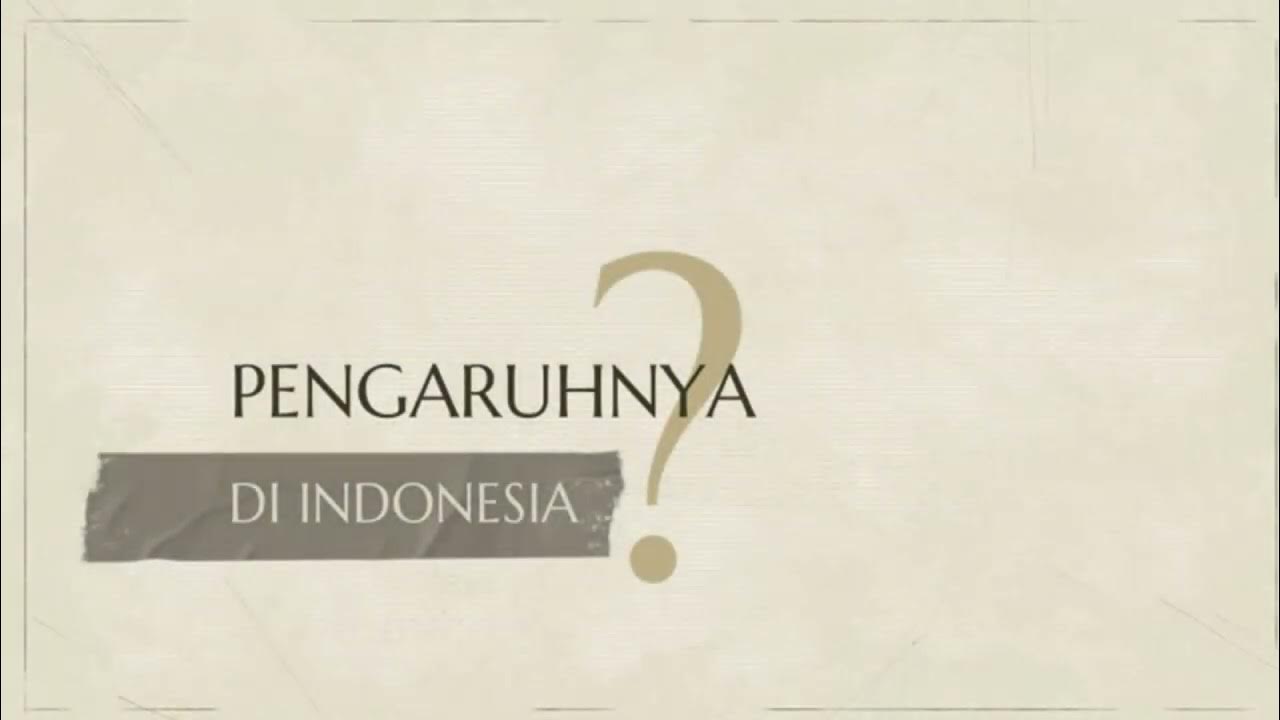Science, Technology and Society - Intellectual revolutions that defined society - African
Summary
TLDRThis presentation explores the African intellectual revolution of the 20th century, discussing its impact on modern science and the broader world. It highlights how African nations, following years of colonization and exploitation, fought for independence and cultural reclamation. The presentation also delves into the significant achievements in African science, technology, and civilization, from mathematics and astronomy to metallurgy and medicine. Perspectives from historians like Karl Marx and Kenneth Dike are discussed, emphasizing Africa’s rich history and contributions to global knowledge, while challenging Eurocentric narratives.
Takeaways
- 🌍 The African intellectual revolution focused on overcoming the exploitation by capitalist maritime nations of Western Europe.
- 🖋️ Karl Marx viewed Africa as a victim of commercial exploitation, with its people treated as resources to be exploited by Western powers.
- 🏛️ By the end of the 19th century, nearly all of Africa had been colonized by European powers, depriving African people of self-governance and control over their lands.
- 📚 African states post-independence needed to abolish illiteracy, backwardness, and economic dependence through rapid industrialization and modernization.
- 🧠 The intellectual revolution aimed to 'Africanize' civil services and administration, catching up with advanced countries after colonialism.
- 🧬 Africa has a rich history of scientific and technological achievements, dating back thousands of years, including contributions to mathematics and astronomy.
- 🏗️ Ancient African civilizations, such as Egypt, Nubia, and Aksum, were highly advanced, with impressive achievements in architecture, metallurgy, and engineering.
- 💉 Africa had significant contributions to medicine, including early practices of surgery, autopsy, vaccination, and bone setting, often predating European advancements.
- 🚢 African societies were skilled navigators, using a variety of vessels for trade and exploration, with evidence of long-distance trade routes across oceans.
- 📜 Kenneth Dike emphasized the importance of African historiography and epistemology, challenging Eurocentric views and highlighting the value of African oral traditions and history.
Q & A
What is the African intellectual revolution as described in the script?
-The African intellectual revolution refers to the significant shift in African societies' thinking, especially in the 20th century. It was driven by the need to reclaim African history, identity, and self-governance from colonial exploitation and intellectual subjugation.
How did Karl Marx view Africa during the era of colonialism?
-Karl Marx viewed Africa as a region subjected to commercial exploitation, referring to it as 'a warrant for the commercial hunting of black skins.' This was in the context of the exploitation and oppression carried out by European colonial powers.
What were some key issues that African nations needed to address post-colonialism?
-Post-colonial African nations needed to address illiteracy, economic dependence, and backwardness. They aimed to train local personnel to manage their countries, implement land reforms, industrialize rapidly, and raise living standards to catch up with developed nations.
What were the key achievements of ancient African civilizations in science and technology?
-Ancient African civilizations made significant advances in astronomy, mathematics, metallurgy, architecture, and engineering. For example, Egyptians created textbooks on mathematics, astronomy, and sophisticated architectural structures like pyramids. They also developed medical treatments and complex systems of governance.
What role did Africa play in the development of astronomy?
-Several ancient African cultures contributed to astronomy, charting the movement of the sun, constellations, and the cycles of the moon. They created a year-long calendar system and even understood astronomical phenomena like Saturn's rings and Jupiter's moons.
What are some medical procedures that originated in ancient Africa?
-Medical procedures such as vaccination, autopsy, limb traction, broken bone setting, brain surgery, and cesarean sections were performed in ancient Africa long before they became common in Europe. African cultures also practiced surgeries under antiseptic conditions.
What contributions did Africans make in mathematics during ancient times?
-Africans made significant contributions to mathematics, including developing early counting methods over 35,000 years ago, creating systems of division and multiplication, and calculating the circumference of circles. The Yoruba people in Nigeria even developed a numeration system based on units of 20.
How did Kenneth Dike challenge Eurocentric views of African history?
-Kenneth Dike challenged Eurocentric views by emphasizing the importance of African perspectives and oral traditions in understanding history. He demonstrated that African historiography was as legitimate as European history, focusing on African agency and epistemology.
What was Dike’s view on African self-governance and culture?
-Dike believed that for political development to occur, Africans needed profound self-knowledge and recognition of their history and culture. He argued that as long as Africans were seen as people without culture and history, their ability to govern themselves would be questioned.
What were some major architectural achievements in ancient Africa?
-Ancient African civilizations were known for their impressive architectural achievements, including the construction of the Pyramids of Giza, the Great Sphinx, and monumental structures in Egypt. Other notable accomplishments include the great cities of Zimbabwe and Mozambique with their complex compounds and iron-smelting facilities.
Outlines

This section is available to paid users only. Please upgrade to access this part.
Upgrade NowMindmap

This section is available to paid users only. Please upgrade to access this part.
Upgrade NowKeywords

This section is available to paid users only. Please upgrade to access this part.
Upgrade NowHighlights

This section is available to paid users only. Please upgrade to access this part.
Upgrade NowTranscripts

This section is available to paid users only. Please upgrade to access this part.
Upgrade NowBrowse More Related Video

Communists, Nationalists, and China's Revolutions: Crash Course World History #37

ARSITEKTUR MODERN AWAL I KELOMPOK 2

(1/4) Diego Gracia G. "Nuestra situación intelectual: Zubiri en el horizonte de la complejidad"

How ancient art influenced modern art - Felipe Galindo

ARSITEKTUR ABAD KE 18 - 19 PASCA REVOLUSI INDUSTRI_KELOMPOK 5_A3

How science fiction can help predict the future - Roey Tzezana
5.0 / 5 (0 votes)